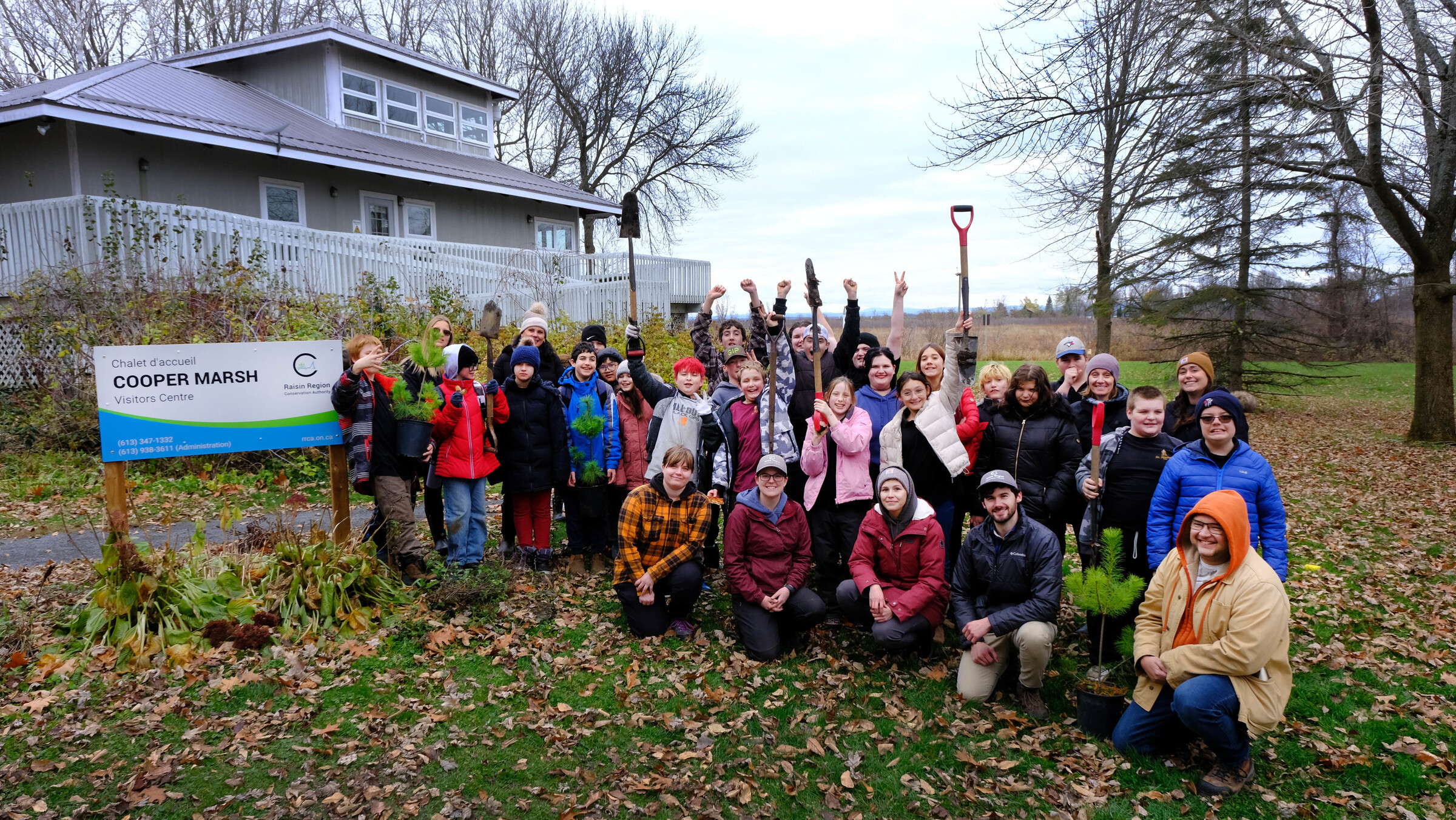
RAISIN REGION CONSERVATION AUTHORITY
Students from St. Matthew Catholic Secondary School recently joined Raisin Region Conservation Authority (RRCA) and Mohawk Council of Akwesasne staff to help plant nearly 300 trees and native wildflowers at Cooper Marsh Conservation Area in South Glengarry. The school’s shop class has also helped assemble waterfowl nesting boxes, dozens of which are set to be added to the Marsh’s existing structures by the RRCA this winter.
“We are incredibly grateful to St. Matthew’s students for helping us enhance this 673-acre RRCA Conservation Area,” says RRCA Stewardship Specialist, Brendan Jacobs. “The Marsh is part of one of the most significant coastal wetlands in Ontario and provides habitat and shelter to a wide range of plants and animals, including nearly 200 bird species and multiple species-at-risk.”
The improvements are part of the RRCA’s Cooper Marsh Biodiversity Project, a multi-year effort to protect and improve the Marsh’s rich biodiversity through initiatives such as habitat planting and enhancement, invasive species control, biodiversity monitoring, and outreach.
“Our students enjoyed this hands-on opportunity to enhance our local environment while also learning about the significant impact of artificial nesting structures for bird populations, how to identify tree species, and traditional Indigenous plant uses,” says St. Matthew teacher Jaime Summers McAlear. The students also helped install several tree swallow nesting boxes at the Marsh.
The Cooper Marsh Biodiversity Project was undertaken with the financial support of the Nature Smart Climate Solutions Fund, a Government of Canada’s Department of Environment and Climate Change program in partnership with Conservation Ontario. Funding was also awarded by Ontario Power Generation in 2021.
Cooper Marsh is one of RRCA’s three Conservation Areas, along with Charlottenburgh Park and Gray’s Creek. In all, the conservation authority currently conserves and maintains 1,863 acres of environmentally significant land to preserve ecologically sensitive habitat, increase tree cover, maintain green infrastructure for natural hazard resilience, and provide recreation and eco-tourism opportunities.
The RRCA reminds visitors that Cooper Marsh is currently closed for several weeks due to habitat enhancement work that is part of a larger project ongoing since last fall thanks to funding secured by Ducks Unlimited Canada (DUC).
For more information about RRCA’s Conservation Areas, visit rrca.on.ca or contact (613) 938-3611 or [email protected].
